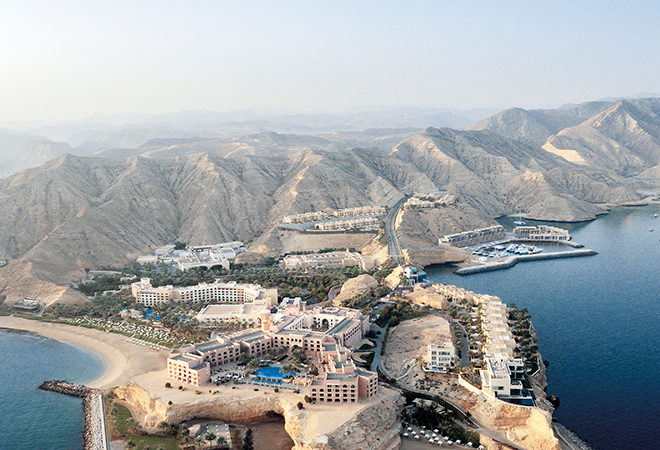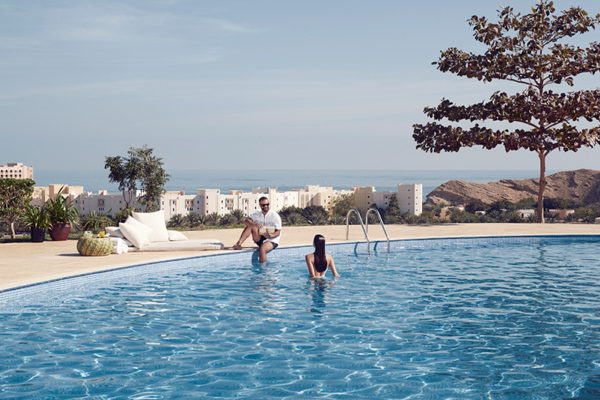Focus: Oman Property Market
Despite having been hit hard during the 2007 global financial crisis, the Oman property market has rebounded and is gaining speed.

Foreign investors are increasingly lured to buy into the Omani property market due to factors such as a stable government, good relations with the West and Iran, and a series of Integrated Tourism Complexes (ITC)—gated luxury communities.
“The opening of Oman’s real estate market to foreigners began in 2002, as part of the “Vision 2020” plan, which aims to diversify Oman’s economic base and reduce its dependence on oil revenues. In December 2002, Gulf Cooperation Council (GCC) nationals gained the right to own real estate for residential or investment purposes. In February 2006, other nationalities were also given the right to own real estate, but only in ITCs,” as stated in Global Property Guide. ITC developments such as Almouj—previously known as The Wave—and Barr Al Jissah offer buyers freehold villas, town houses or apartments. Almouj lies along the sandy coast of the Arabian Sea and is near an 18-hole golf course designed by Greg Norman, while Barr Al Jissah offers villas and town houses eat of Muscat along Oman’s Mountainous coast. It went through a branding relaunch in April 2015 and the refurbished development returns in late 2015. Buyers can obtain two-year renewable residence visas for themselves and their immediate families.
Cluttons real estate agency highlighted that “after several challenging years following the impacts of the global financial crisis, there is evidence of growing strength and confidence in the ITC residential sector which is translating into a significant increase in developments.”
Omani nationals and expatriates have significantly been attracted to invest in the country. According to data from the Ministry of Housing and Land Registry, real estate transactions reached over OR2 billion (US$5.2billion) in 2013, representing growth of more than 34 percent over the previous year. Muhammed Yasir Qidwai, head of professional studies with Coldwell Banker in the Omani capital, Muscat stated that “there is a controlled release of units coming onto the market, meaning that there is great stability.”
Signs of increasing confidence in the property market are also evident as developers are seizing opportunities and venturing into the region. “The Al Raid Group of Oman and British luxury property developer Consero London have embarked on a venture to develop luxury residences worth £300 million (US$454 million) in gross development value across Oman and the wider Middle East over the next five years,” reports Arabian Knight, a quarterly magazine for the Arab world’s elite. Sheikh Fahad Abdullah Al Araimi, CEO of the Al Raid Group, highlighted that “there is a sustained demand for luxury apartments and large villas in Oman from both domestic, wider GCC and international expatriate buyers.”
Buyers are increasingly attracted to Omani cities such as Muscat for its excellent air and road links to Dubai, amongst other factors. Cluttons’ Spring 2015 Muscat Residential Market Outlook Report shows that there is steady growth of Oman’s sales market, with Muscat’s ITC developments attracting a mix of end-users and investors seeking to take advantage of rental yields, which stand out at around six to seven percent. The steady influx of expat families to the Omani capital has also resulted in rising levels of tenant requirements and the demand for gated communities, particularly for three-bedroom villas.
Savills Property Market Review 2014 also mentioned that “there is a growing disparity between freehold values between Oman’s ITCs and its neighbouring countries, with Dubai now recording average values double those of Muscat. Whilst the two markets should not be directly compared, this is likely to enhance the appeal of investment into these projects for GCC nationals and this “second offering” of ITCs has the potential to cement Oman as an attractive foreign investment destination.”
Story Credits
Text by Domenica Tan
This story first appeared in PALACE Magazine.



